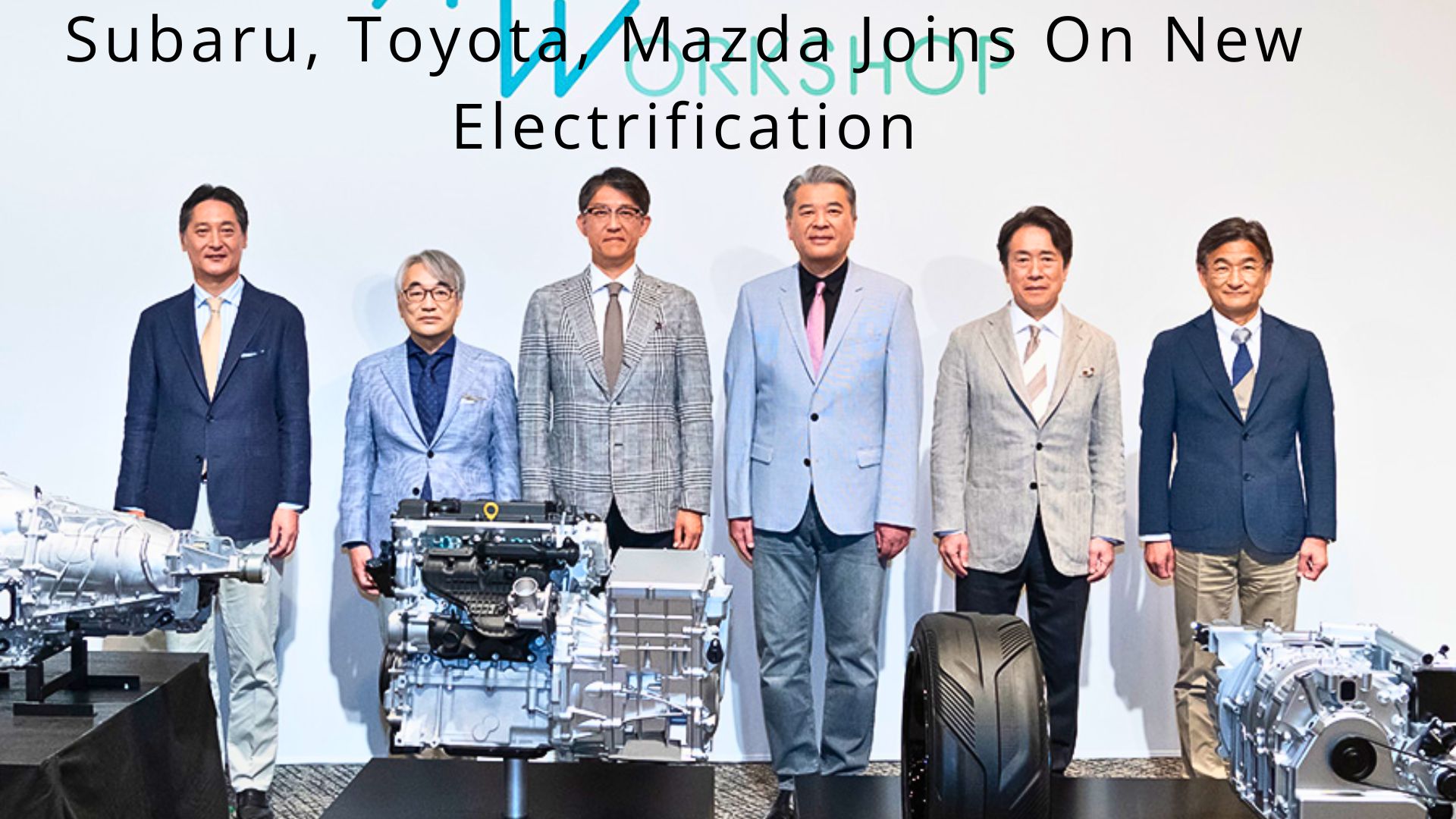Subaru Corporation, Toyota Motor Corporation, and Mazda Motor Corporation have announced a joint initiative to develop new engines optimized for electrification
In a significant move towards achieving carbon neutrality, Subaru, Toyota, and Mazda have announced a joint initiative to develop new engines optimized for electrification. These engines will be designed to seamlessly integrate with electric components such as motors and batteries, while also being compatible with various carbon-neutral fuels (CN fuels) to ensure sustainability for internal combustion engines.
Innovative Engine Development for a Sustainable Future
The collaboration is set to revolutionize engine technology by making engines smaller and more efficient. This innovation will enable improved vehicle packaging, allowing for more aerodynamic designs and enhanced fuel efficiency. The engines will be adaptable to a range of carbon-neutral fuels, including synthetic fuels (e-fuel), biofuels, and liquid hydrogen, marking a significant step away from traditional fossil fuels.
Executive Insights
During the announcement, key executives from the three companies expressed their commitment to this groundbreaking project:
Atsushi Osaki, President and CEO of Subaru Corporation, stated, “Achieving a carbon-neutral society is a challenge that Japan’s industry and society as a whole must address. As we continue to refine our vehicle electrification technology, we will also further refine our boxer engines to utilize carbon-neutral fuels. Our three like-minded companies will continue to invigorate Japanese car manufacturing.”
Koji Sato, President and CEO of Toyota Motor Corporation, added, “To provide customers with a variety of options that contribute to carbon neutrality, we will take on the challenge of evolving engines to better suit the energy environment of the future. The three companies share the same aspirations and will work hard together to hone their technologies.”
Masahiro Moro, President and CEO of Mazda Motor Corporation, emphasized, “We will continue to refine internal combustion engines for the age of electrification, expand the feasibility of carbon neutrality through multiple pathways, and provide cars that excite our customers. We will take on the challenge of co-creation and competition so that we can develop the rotary engine, which is well suited to electrification and carbon-neutral fuels, into a technology that can make a wide-ranging contribution to society.”
Commitment to Carbon Neutrality
The partnership aims to address the environmental impact of internal combustion engines by developing next-generation engines that will perform optimally when combined with electric units. This approach will not only enhance engine performance but also ensure compliance with future stringent emission regulations. By focusing on reducing the engine size while maintaining high efficiency and output, the companies aim to improve both design aesthetics and aerodynamic performance, contributing to better fuel economy.
Expanding the Use of Carbon-Neutral Fuels
One of the key aspects of this initiative is the compatibility of the new engines with a variety of carbon-neutral fuels. This adaptability will help in the wider adoption of CN fuels, thereby supporting global efforts to reduce carbon emissions. The engines will be designed to work efficiently with e-fuels, biofuels, and liquid hydrogen, providing multiple pathways to achieve carbon neutrality.
Collaborative Innovation
This joint venture highlights the commitment to co-create a sustainable future for the automotive industry. While the companies will maintain healthy competition in product development, they will collaborate to advance engine technology and achieve their shared goal of carbon neutrality.
Conclusion
Subaru, Toyota, and Mazda are leading the charge towards a carbon-neutral future with their innovative approach to engine development. By creating engines that are not only compatible with electric units but also adaptable to various carbon-neutral fuels, these automotive giants are setting new benchmarks for sustainability in the industry. This collaboration underscores their dedication to providing environmentally friendly options without compromising on performance or driving experience.
This joint venture highlights the commitment of Subaru, Toyota, and Mazda to co-create a sustainable future for the automotive industry. While the companies will maintain healthy competition in product development, they will collaborate to advance engine technology and achieve their shared goal of carbon neutrality.

